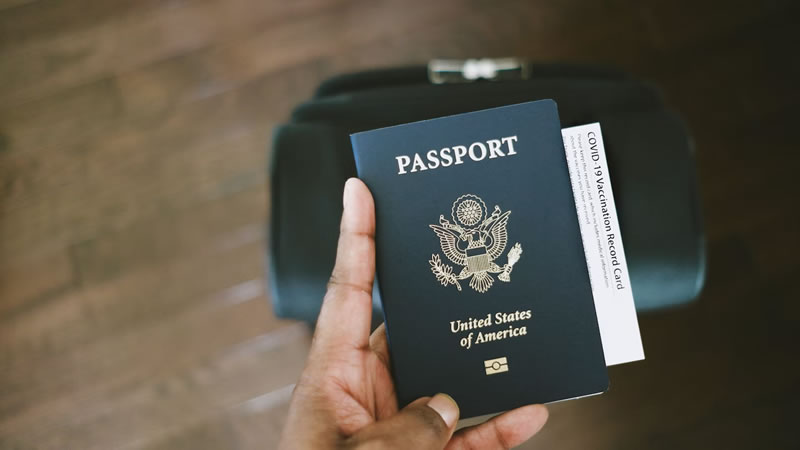Previous Post: Choosing the Right Travel Insurance Plan | Factors to Consider
06/30/2023
Travel Insurance for International Trips | Key Considerations and Coverage
Understanding the Importance of Travel Insurance for International Trips

Introduction:
Traveling abroad can be an exciting and enriching experience, but it's essential to be prepared for the unexpected. One crucial aspect of trip planning that often gets overlooked is securing adequate travel insurance. In this in-depth guide, we will explore the key considerations and coverage options you need to know when it comes to travel insurance for international trips.
1. Why Do You Need Travel Insurance? When embarking on an international trip, unexpected events such as flight cancellations, lost baggage, or medical emergencies can disrupt your plans and potentially incur significant expenses. Travel insurance acts as a safety net, providing financial protection and peace of mind throughout your journey.
2. Medical Coverage: One of the primary reasons to have travel insurance is to ensure access to quality healthcare while abroad. Medical emergencies can happen at any time, and the costs associated with treatment in a foreign country can be exorbitant. Look for a travel insurance policy that offers comprehensive medical coverage, including emergency medical expenses, hospitalization, and medical evacuation or repatriation.
3. Trip Cancellation and Interruption: Sometimes unforeseen circumstances may force you to cancel or cut short your trip. Trip cancellation and interruption coverage can help protect your investment by reimbursing non-refundable expenses such as airfare, accommodation, and tour reservations. Valid reasons for cancellation or interruption usually include illness, injury, or death of the traveler, a family member, or a travel companion, as well as unexpected events such as natural disasters or civil unrest.
4. Lost or Delayed Baggage: Imagine arriving at your destination only to find out that your luggage has been lost or delayed. Travel insurance can provide coverage for such situations, allowing you to purchase essential items while waiting for your baggage to be returned. Make sure your policy includes baggage delay and loss coverage, which typically reimburses you for necessary purchases like clothing, toiletries, and other essentials.
5. Travel Delay and Missed Connections: Flight delays and missed connections can wreak havoc on your travel plans. Travel insurance can provide coverage for additional expenses incurred due to a delayed or canceled flight, such as accommodation, meals, and transportation. Some policies may also include coverage for missed connections, ensuring you reach your intended destination without significant financial burdens.
6. Emergency Assistance Services: Having access to 24/7 emergency assistance services is a valuable feature of travel insurance. In case of emergencies, such as accidents or medical situations, you can contact the insurance provider's assistance hotline for guidance and support. These services can help you navigate unfamiliar healthcare systems, arrange emergency medical transportation, or assist with other travel-related emergencies.
Securing travel insurance for your international trips is an essential part of responsible travel planning. It offers financial protection and peace of mind, allowing you to focus on enjoying your journey without worrying about unforeseen circumstances.
Types of Coverage and Tips for Selecting the Right Travel Insurance Policy
1. Comprehensive Travel Insurance: Comprehensive travel insurance is a popular choice as it provides a wide range of coverage, including medical expenses, trip cancellation or interruption, baggage loss or delay, travel delays, and more. This type of policy offers extensive protection and is suitable for travelers who want peace of mind knowing they are covered for various contingencies.
2. Medical Evacuation and Repatriation: When traveling abroad, especially to remote or underdeveloped areas, it's crucial to have coverage for medical evacuation and repatriation. These provisions ensure that if you encounter a severe medical emergency or injury that requires transportation to a better-equipped medical facility or back to your home country, the costs will be covered. Medical evacuation and repatriation coverage can be especially critical in countries with limited healthcare infrastructure.
3. Pre-Existing Medical Conditions: If you have pre-existing medical conditions, it's essential to find a travel insurance policy that offers coverage for them. Some policies may exclude coverage for pre-existing conditions, while others may provide coverage but require additional premiums or medical assessments. Be transparent about your medical history when purchasing travel insurance to ensure you have the necessary coverage for any existing health conditions.
4. Adventure Activities and Sports: If you plan to participate in adventure activities or sports during your trip, check if your travel insurance covers them. Many standard policies have exclusions for certain high-risk activities, such as skydiving, bungee jumping, or scuba diving. If you intend to engage in these activities, consider purchasing a policy that offers coverage specifically for adventure sports or activities.

5. Coverage Limits and Deductibles: Carefully review the coverage limits and deductibles outlined in the travel insurance policy. Coverage limits indicate the maximum amount the insurer will pay for a particular category of expenses, such as medical costs or baggage loss. Deductibles refer to the amount you must pay out of pocket before the insurance coverage kicks in. Ensure that the coverage limits are sufficient for your needs and that the deductibles are reasonable and manageable.
6. Read the Policy Fine Print: Before purchasing any travel insurance policy, make sure to thoroughly read and understand the policy's terms and conditions. Pay attention to exclusions, limitations, claim procedures, and any additional requirements. Understanding the fine print will help you make an informed decision and avoid unpleasant surprises when you need to make a claim.
7. Compare Multiple Quotes: Don't settle for the first travel insurance policy you come across. Take the time to compare quotes from different insurers, considering the coverage offered, premiums, reputation, and customer reviews. This will help you find the best balance between coverage and affordability.
Selecting the right travel insurance policy for your international trip requires careful consideration of the available coverage options and your specific needs. Understanding the types of coverage available, assessing your requirements, and comparing multiple quotes will empower you to make an informed decision.
Tips for a Smooth Claims Process and Effective Use of Travel Insurance
1. Keep Documentation Handy: To facilitate the claims process, it's essential to keep all relevant documentation organized and easily accessible. This includes receipts, medical reports, police reports (in case of theft or loss), and any other supporting documents related to your claim. Make digital copies and store them securely in cloud storage or email them to yourself for backup.
2. Contact Your Insurer Immediately: In case of an emergency or unexpected event that may result in a claim, contact your travel insurance provider as soon as possible. They will guide you through the necessary steps and provide instructions on how to proceed. Promptly reporting the incident or situation ensures that you receive timely assistance and that the claims process is initiated efficiently.
3. Follow the Claims Procedure: Each travel insurance policy has specific procedures for filing a claim. Read and understand the claims process outlined in your policy document. Adhere to the instructions provided by your insurer, including submitting the necessary forms, supporting documents, and any other requested information. Following the correct procedure will help expedite your claim.
4. Document the Incident: In the event of a medical emergency, accident, theft, or any other covered incident, document the details as thoroughly as possible. Take photographs, gather witness statements, and maintain a written record of what transpired. This evidence will support your claim and help demonstrate the validity of your case.
5. Be Aware of Claim Deadlines: Most travel insurance policies have specific deadlines for filing claims. It's crucial to be aware of these deadlines and submit your claim within the specified timeframe. Failing to meet the deadline may result in denial of your claim, so be proactive and submit your claim promptly.
6. Understand Policy Exclusions: Carefully review the policy exclusions to understand what situations or circumstances may not be covered by your travel insurance. Common exclusions include pre-existing medical conditions, high-risk activities, or losses due to certain acts of war or terrorism. Knowing the exclusions will help you set realistic expectations and avoid potential claim rejections.
7. Use Your Insurance Benefits: During your trip, familiarize yourself with the coverage and benefits provided by your travel insurance policy. This includes knowing the contact details for emergency assistance services, understanding the coverage limits for medical expenses and emergency evacuation, and being aware of any additional perks or services offered. Utilize your insurance benefits when necessary to ensure a smooth and safe travel experience.
Conclusion:
Congratulations! You now have a comprehensive understanding of travel insurance for international trips. By following the tips outlined in this guide, you can navigate the claims process effectively and make the most of your travel insurance coverage. Remember to plan ahead, choose the right policy, keep documentation organized, and understand the policy terms to ensure a worry-free journey. Safe travels!

Another resource you may want to check: U.S. Department of State - Bureau of Consular Affairs
Next Post: How to Make a Travel Insurance Claim | Step-by-Step Guide
Home >> Travel Insurance >> Post

